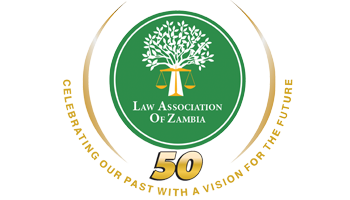Objectives
Objectives
- To provide a means by which all lawyers, whatever their particular field of activity, can participate together fully and effectively in the development of society and its institutions;
- To co-operate with the representative bodies of other professions and other institutions;
- The applicability and suitability of received law;
- The influence of industrial, commercial and technological development on society and social institutions;
- To promote the reform of the law, both by the amendment of and the removal of imperfections in existing law, and by the re-formulation, codification or restatement of particular branches of the law;</li>
- To do all such other things as may be conducive to the attainment of the foregoing objects or any of them.
Investments
Under section 19 of the Act, the Association has power, for the advancement of its objects or any of them:
- To acquire, hold, develop, sell, mortgage, charge, lease or otherwise deal with or dispose of property of all kinds, whether real or personal;
- To raise or borrow money in such manner and upon such security as may be determined by the Council.
Under section 20 (2) of the Act, The Council may invest in such manner as it shall think fit any moneys held by the Association which are not immediately required for the performance of its functions.
In achieving the foregoing objects, the Committee shall inter alia:
- Scrutinise various investment opportunities with the ultimate desire of growing the assets of the Association;
- Look into and submit recommendations for the creation of a Fund;
- Set investment guidelines and portfolio thresholds;
- With the approval of council, engage Fund Managers as appropriate; and
- Take all steps necessary and/or incidental to the foregoing for the operation of the Fund, if created.
Finanace
Under section 20 (1) of the Act, the Association has funds which consist of:
- Entrance fees and subscriptions of members and fees payable on admission to the roll of practitioners and the issue of Practising certificates;
- Sums paid to the Association by way of grant or donation; and
- Other moneys as may accrue to the Association in the exercise of its functions.
Need be mentioned that the Act pursuant to section 20 (3) does not permit the distribution or payment of any moneys or other assets or income of the Association to or for the benefit of any member of the Association.
Section 22 (1) of the Act obligates the Association to keep proper books of account and other records relating thereto and to prepare in respect of each financial year a statement of account and balance sheet showing, in all necessary detail, the income and expenditure and the assets and liabilities of the Association.
- The Committee shall endeavour to ensure that finances of the Association are used appropriately and that proper books of accounts are maintained.
Modernisation
In the social sciences, modernisation refers to a model of an evolutionary transition from a ‘pre-modern’ or ‘traditional’ to a ‘modern’ society. The teleology of modernisation is described in social evolutionism theories, existing as a template that has been generally followed by societies that have achieved modernity.
Historians link modernisation to the processes of urbanisation and industrialisation as well as to the spread of education.
Development, like modernisation, has become the orienting principle of our time. Countries that are seen as modern are also seen as developed. The extent to which a country has modernised or developed dictates its power and importance on the international level.
The aforementioned propositions are akin to the Legal Profession in Zambia and it is imperative that the Legal profession remains responsive amidst the latin maxim, “ubi societas, ibi jus”.
The Act deals with issues of modernisation under the objects of the Association. There seems to be no express provisions under the Act dealing with this subject aside from the objects. However, under the Legal Practitioners’ Practice Rules 2002(hereinafter referred to as the “Rules”), the following areas, inter alia, will be under consideration. These will be divided into 2 categories, i.e. “Absolute and Immediate”, and “Relative and Progressive”.
Partnership with non-Lawyers
Rule 7 (1)
A practitioner shall not share or agree to share the professional fees with any unqualified person.
Rule 7(3)
A practitioner shall not enter into partnership with any person other than a practitioner who is qualified to practice in his or her own behalf.
- The Committee shall recommend modernisation of key areas of Law practice.
Further, the Committee proposes a holistic, phased but progressive review of all other pieces of legislation, rules and regulations impacting on the practice of law in Zambia including, inter alia, rules relating to training of legal practitioners, archaic rules of evidence, rules as to limitation of the size of partnerships etc, with a view to proposing their amendment to bring them in line with the exigencies of the practice of law today.
Membership
Mr. Sokwani Peter Chilembo – Convenor – Midlands
